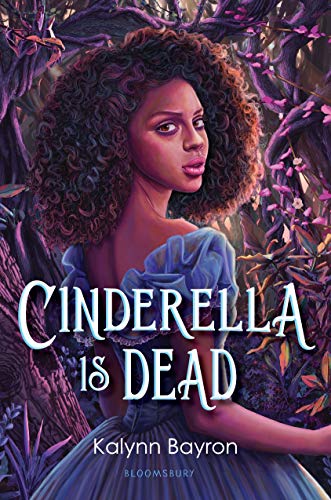Cinderella Is Dead is built from the shattered pieces of the cruel and sexist Western fairy tale canon. Re-imagining Cinderella by showing and fighting against a patriarchal fairy tale kingdom, with a keen understanding of stories' power to inspire real change.
It goes beyond, "Cinderella but not how you know her", to tell an entirely new story and re-contextualize an old one. I liked how over-the-top and terrible the existing system was, it fits right in with classic (European*) fairy tales in terms of capriciousness and cruelty (*I mention European fairy tales specifically because that's the canon I'm most familiar with, and the version of Cinderella which involves a glass slipper is French). However, having a female protagonist, making that protagonist queer, and relentlessly centering strong female characters, results in a story that feels powerful and new.
The early part of the book had a lot of world to build very quickly and it was handled masterfully, leaning just enough on a basic understanding of the classic Cinderella story to add background, but not so much as to be unintelligible to someone unfamiliar with the mythos. Early on it specifically establishes that the system isn’t just unfair to queer girls like Sophia, but to anyone who doesn’t want to fit the mold of “young girl marries a man” (and even to those who might otherwise be fine with it, but find themselves controlled and abused by the men in their lives). I do mean girls marrying men, specifically, since in the world at the start of the book girls ages 16-18 are being paired with some boys their age, but mostly with men of any age who decide they’d like a wife. The implications of this system are explored enough to drive home the horror of the system, but without turning the book into a litany of abuses.
I loved this redefinition of the classic fairy tale; it took some elements of the original and transformed them into a completely new story, one I very much enjoyed. I thought I knew where this would turn, the steps the story would take, and right as I was getting comfortable with the supposed trajectory it surprised me in a really good way. I was thoroughly and pleasantly surprised with the twists and turns. I won’t claim that no one could guess them, just that I didn’t do so and I had a marvelous time going along for the ride.
CW for systemic lack of consent, domestic violence, murder.

Comments
Post a Comment